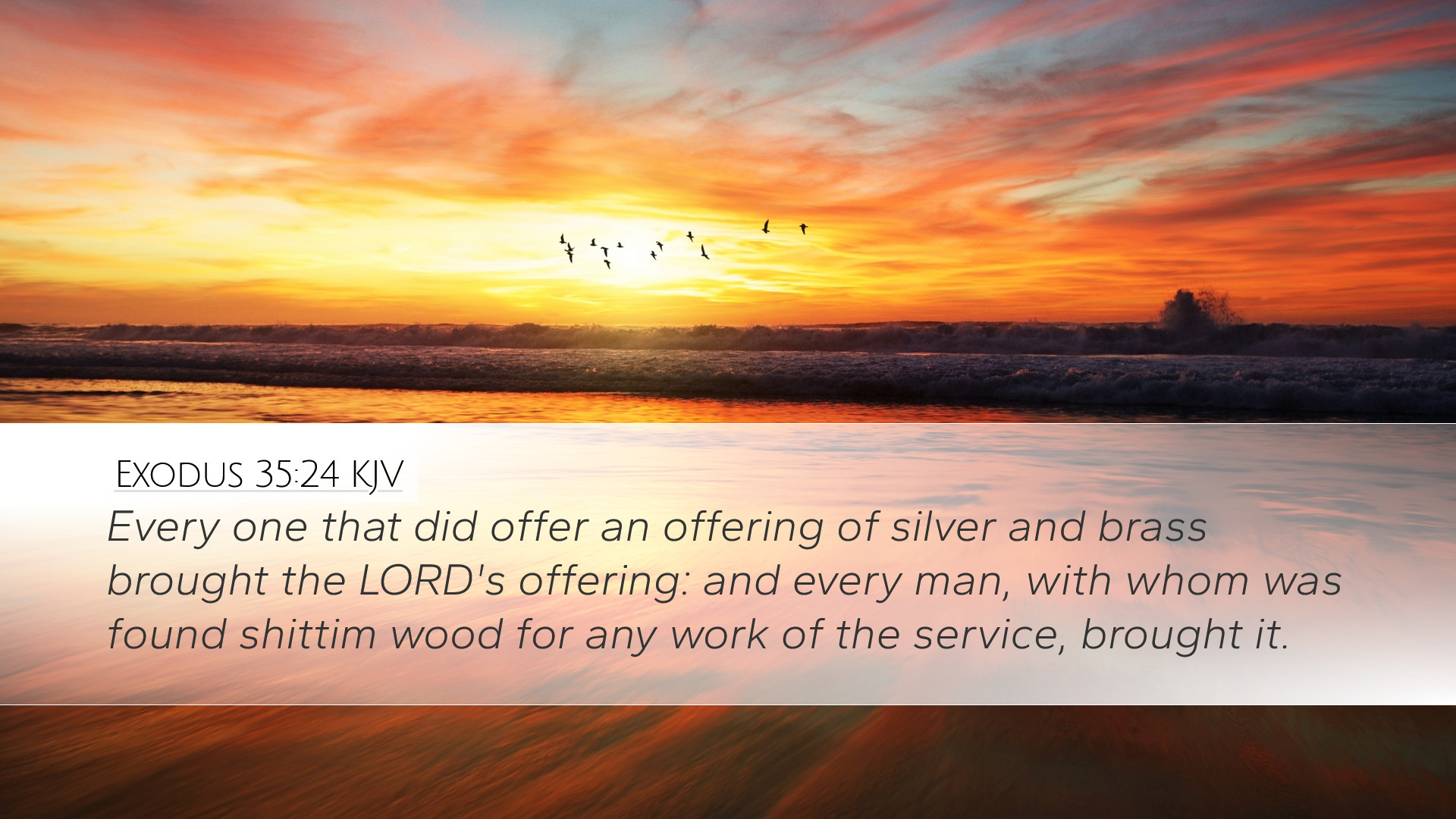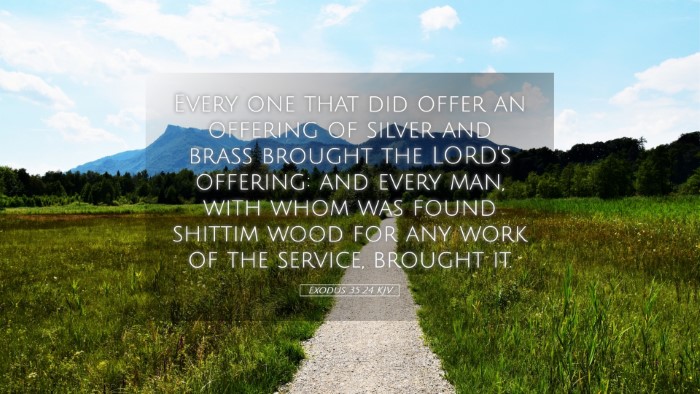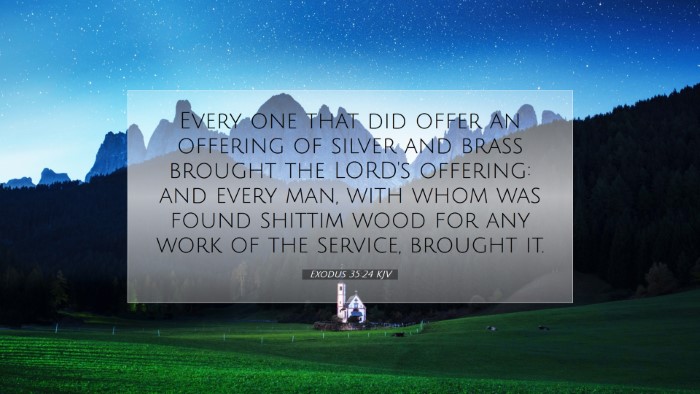Commentary on Exodus 35:24
Verse: "Everyone who was willing and whose heart moved them came and brought an offering to the LORD for the work on the tent of meeting, for all its service and for the sacred garments." - Exodus 35:24
Introduction
This passage from Exodus highlights the voluntary nature of contributions made for the worship and service of God. It is vital for pastors, theologians, and scholars to analyze the spiritual principles surrounding giving, as exemplified in this verse. The insights from various public domain commentators will illuminate the depth of this scripture.
Contextual Background
Exodus 35 occurs in a crucial narrative detailing the construction of the Tabernacle, a symbol of God's dwelling among His people. The Israelite community is invited to participate in this divine project, reflecting the cooperative relationship between God and His people.
Key Themes
- Voluntary Participation: There is a significant emphasis on the willing heart of the contributors.
- Divine Purpose: The offerings were directed towards a specific purpose, enhancing the understanding of sacred service.
- Community Involvement: This was a collective effort, indicating the importance of communal contributions in worship.
Commentary Insights
Matthew Henry's Commentary
Matthew Henry notes the importance of voluntary giving, emphasizing that the offerings were brought by those whose hearts were moved. He remarks that God desires gifts that are given freely and willingly, not out of compulsion. This aligns with the New Testament principle that God loves a cheerful giver (2 Corinthians 9:7). Henry elaborates that the offerings represent both material contributions and the attitude of the heart, showcasing a deeper spiritual commitment to God’s work.
Albert Barnes' Notes
Albert Barnes focuses on the phrase "everyone who was willing". He highlights that this invitation to give was directed to those with a heart inclined towards God’s service. Barnes emphasizes that the act of giving signifies an individual's relationship with God and reflects their dedication to His cause. He also points out that materials received were not just for the Tabernacle itself but also for the sacred garments, indicating that both the structure and the worshippers’ attire were essential for worship.
Adam Clarke's Commentary
Adam Clarke provides a detailed analysis of the significance of contributions for spiritual endeavors. He stresses that the offerings were not merely physical but also represented the devotion and willingness of individuals to serve God. Clarke notes that the readiness to bring offerings shows an understanding of God's provision and the joy in participating in His work. He further elaborates that such acts of giving foster community spirit and demonstrate faith in God’s promises.
Theological Implications
The theology of giving as presented in this verse transcends the Old Testament and finds resonance in contemporary Christian practice. The voluntary nature of offerings is a crucial principle for the church today, encouraging believers to give from a place of love and gratitude, rather than obligation.
God's Sovereignty in Provision
Understanding that all resources ultimately belong to God reinforces the notion that giving is an act of stewardship. The willingness of the people to contribute reflects their recognition of God’s sovereignty and their role in His redemptive story.
Discipleship and Giving
This passage serves as a model for discipleship, as believers today are called to support the work of God through their resources. The act of giving is an expression of faith and trust in God’s provision for personal needs while contributing to the broader mission of the Church.
Practical Applications
- Encouragement for Generosity: Pastors should teach about the joy of giving, fostering an environment where generosity is celebrated.
- Community Engagement: Church leaders can encourage congregations to engage in collective projects, mirroring the unity shown in Exodus 35.
- Spiritual Reflection: Individuals should regularly assess their motivations for giving and ensure they align with God’s principles.
Conclusion
Exodus 35:24 provides profound insights into the nature of giving in the life of faith. Commentators like Matthew Henry, Albert Barnes, and Adam Clarke underscore the significance of heart-led offerings in furthering God’s kingdom. As spiritual leaders, scholars, and students examine this verse, they are invited to reflect on the depth of their commitment to God’s work, encouraging a holistic approach to the act of giving as an integral part of worship and service.


